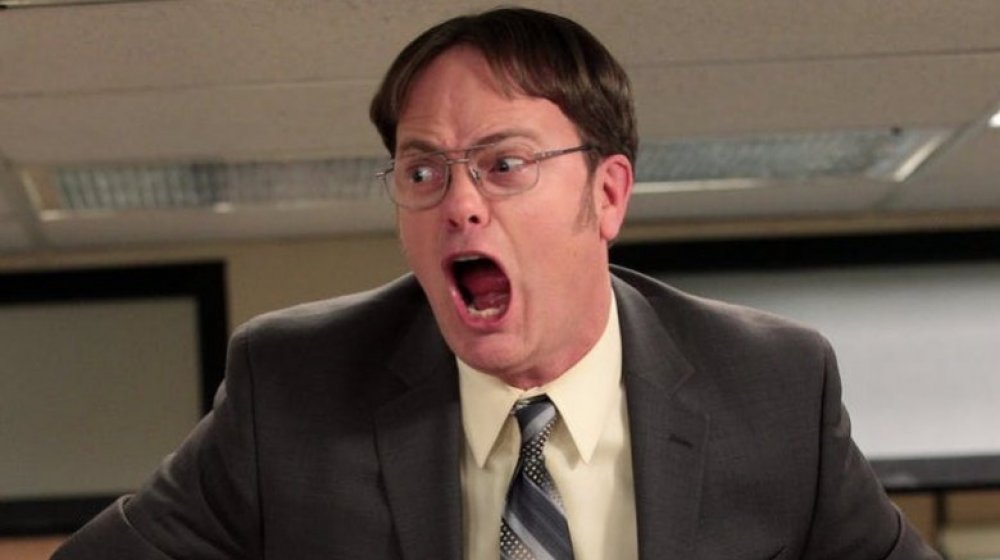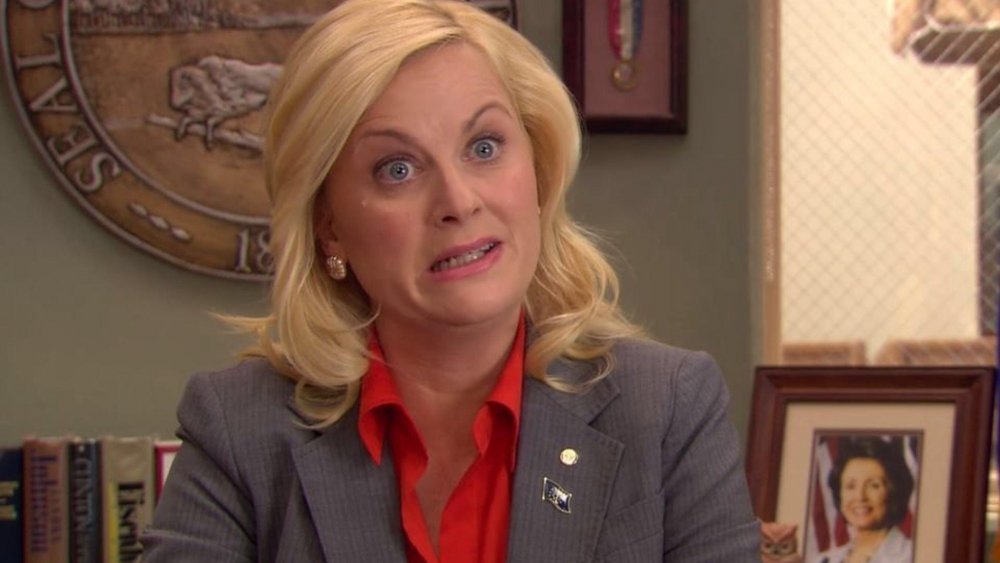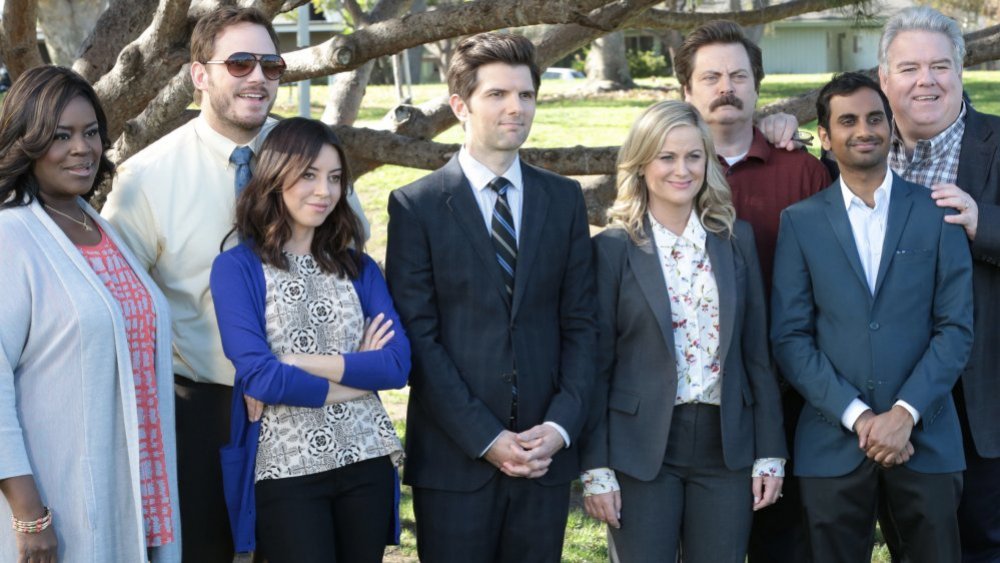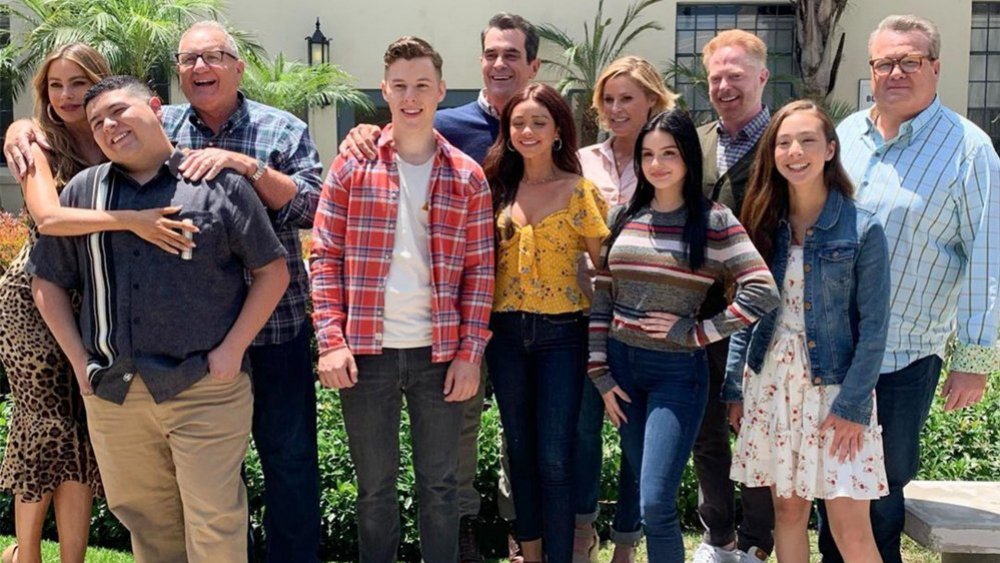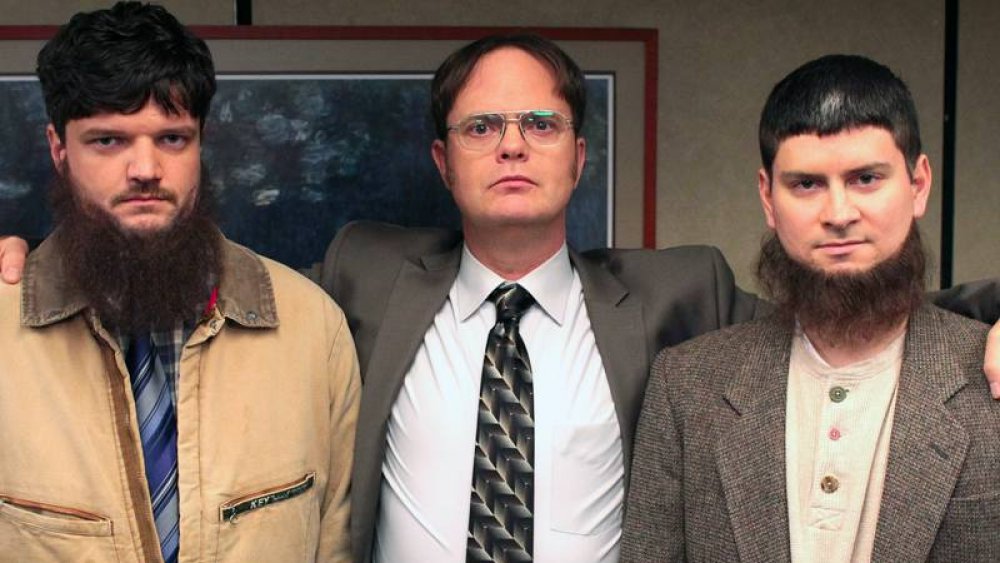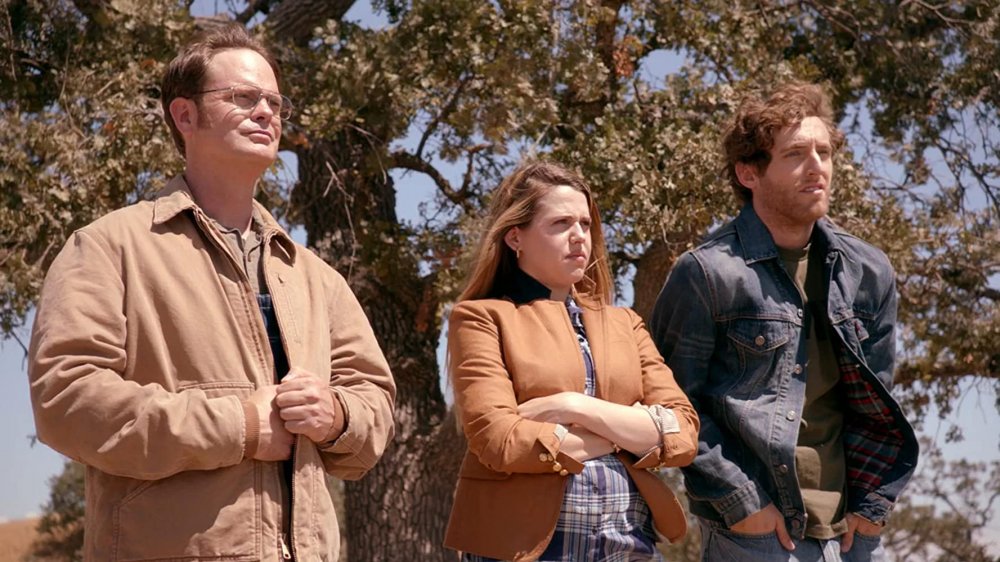The Real Reason There Was Never A True Office Spin-Off
Whenever a television show gets popular, networks usually try to pull together a spin-off that captures the magic of the original, a strategy that has a pretty uneven track record. For every Frasier, the Cheers spin-off that went on to become an astounding success, there's a Joey, the doomed Friends offspring that never made it off the ground. When it came to The Office, one of NBC's most beloved sitcoms ever and a pioneer of the small-screen mockumentary format, it makes sense that NBC would want to create a spin-off that could keep the momentum going even after the original show was gone. They actually did make a few attempts.
If you're wondering where those spin-offs ended up or are having trouble remembering if they even existed, you're not alone. Though one extraordinarily popular show originally conceived as an Office spin-off made a name for itself in its own right, a true Office spin-off simply never materialized, despite a few tries. In Andy Greene's revealing new book, The Office: The Untold Story of the Greatest Sitcom of the 2000s: An Oral History, the show's producers, creators, and writers discuss exactly what happened with a potential Office spin-off, why it never happened, and the debates and arguments behind the entire process.
Another popular NBC sitcom was conceived as a spin-off of The Office
As writer Justin Spitzer says in the book, showrunner Greg Daniels was always looking for a way to make an Office spin-off happen. "I remember even at one point I had that one line as the doctor [in 'Fun Run'] and he looks at me and he's like, 'We'll spin off the doctor!' That was obviously a joke," says Spitzer, "But he was just kind of searching for what characters we had that we could spin off."
Ultimately, Parks and Recreation, which was created by Daniels and Office writer Michael Schur (who also occasionally played Mose Schrute), was intended to be an Office spin-off. Former NBC chairman Ben Silvermain recalled, "When I took over as the chairman of NBC [in 2007], I was like, 'We should be doing a spin-off of The Office.' And Parks and Recreation should have been one." Spitzer agrees, saying, "One of Michael Schur's favorite books was The Power Broker, [about] Robert Moses. He was essentially head of the parks department in New York in the early 20th century. I think some of Parks and Recreation came from that."
However, as producer Teri Weinberg remembers, the Parks crew wanted to do their own thing. "And at that time when Parks and Rec was developed, Ben [Silverman] and I were at NBC, and so we were a part of the birthing of Parks and Rec with Greg and Mike Schur," says Weinberg. "We made the decision to build a whole new world around Amy [Poehler], and take the relationships that we had with Rashida [Jones] and Amy and the cast that we'd built around that show, to create something new and let that be its own organism."
Parks and Recreation took on a separate identity from The Office
Apparently, Silverman was unhappy with Parks' independent identity, saying, "I wanted it developed as a spin-off and I'm annoyed that my voice wasn't heard [...] but then Greg Daniels and Mike Schur didn't want to do a spin-off. I would have had Amy come on and start a relationship with Ed Helms [who played Andy Bernard on The Office] or someone and then they would have kind of spun out into their own show. They wanted to do their own things. I was like, 'You're wrong.' They could have aired together back-to-back. This would be like the biggest thing. It would have been incredible. It was just short-sighted. Everyone would have loved it. It would have been better for both shows."
There was, however, the issue of Rashida Jones' casting on Parks and Recreation after her turn on The Office. As Spitzer recalls, her casting was strategic: "I think in the casting of Rashida Jones as a different character on Parks and Rec, that was them saying, 'This is definitely not a spin-off. We have the same actor playing two different parts. These two shows can't even exist in the same world.'"
Eventually, Parks got to stand on its own, which Weinberg saw as a testament to its quality, saying, "We knew we were comedy gold and we knew that we had so much talent in our characters. In this business, you always get the question of [...] 'Is there a way to take the success of a show and turn it into a spin-off?' And I think that we were smart enough not to fall into that, because we cared about the show so much, and we cared about keeping it intact, and we didn't really want to steal from ourselves. We made the decision to keep it intact."
The problem of Modern Family
Shortly after Parks and Recreation premiered, another show that seemed like it could have been an Office spin-off started making waves. That show was Modern Family, and the creators and crew of The Office were ultimately pretty upset that it seemingly stole their concept. Spitzer recalls, "Greg had in mind to maybe do a family mockumentary show, but I don't know if that would have been a spin-off or its own show. But I know Greg had that idea. Then Modern Family came along."
Some critics, including Alan Sepinwall, didn't mince words, saying "Modern Family shamelessly copied The Office." Silverman agreed. "I was really bummed about that," he says. "It annoyed me. Modern Family is about a family the way The Office is about an office. All I'd wanted to do was a family spin-off. I was so bummed not to be able to pull that off."
As writer Aaron Shure recalls, the biggest issue with Modern Family was that it left out an important aspect of the mockumentary form. "We always put so much thought into why a camera would be present for certain scenes," he says. "And then Modern Family came along and did all the same stuff we did with zero justification about why the camera would ever be anywhere and America just loved it."
A real attempt at an Office spin-off
Ultimately, Daniels and his crew tried to make a real Office spin-off with The Farm, which would focus on the beet farm owned by Dwight Schrute (Rainn Wilson) and his odd family. Writer Brent Forrester remembered, "Paul [Lieberstein, who wrote for The Office and played Toby Flenderson] shoots it. It's great. We all love it. We're like, 'Oh my God. This is a spin-off! Dwight's going to be the star of his own show!'" Ultimately, however, Forrester noted, "NBC decided not to pick it up."
Forrester's recollection might be rosy, but others disagreed. Producer Briton W. Erin said, "Creating a family out of full cloth just didn't work. The cast didn't have chemistry and none of it fit together. It was very clear when we were doing the pilot that it was just a little rushed and the casting was off." Editor Claire Scanlon agreed, saying, "It wasn't good. Sometimes there are great pilots that don't get picked up. This was not one of them. It just didn't have a point of view. It was a mess."
The aftermath of The Farm
In the end, the footage became a season 9 episode of The Office, which was also called "The Farm." As Forrester recalled, "Greg and NBC decided, 'Well, we're just going to do it as an episode of the show.' I remember thinking, 'Come on, no one will buy that. It doesn't have any of the cast, right?' They were like, 'No, we can shoot some new material and a new cold open. Oscar can be there.' So we did it and it's just one of the episodes. To my knowledge, no viewers rebelled. Nobody really figured it out. It's just considered to be this unusual episode. To people who didn't know the backstory, it must have just seemed like the most surreal, biggest swing ever taken by a TV show, where it's like, 'None of the principal cast will be in this episode. It will all be guest cast and they will never be seen again.'"
If you want to revisit "The Farm" or you just want to revisit The Office for the millionth time, you can catch The Office on Netflix before it leaves in January of 2021 for NBC's new streaming service, Peacock.
